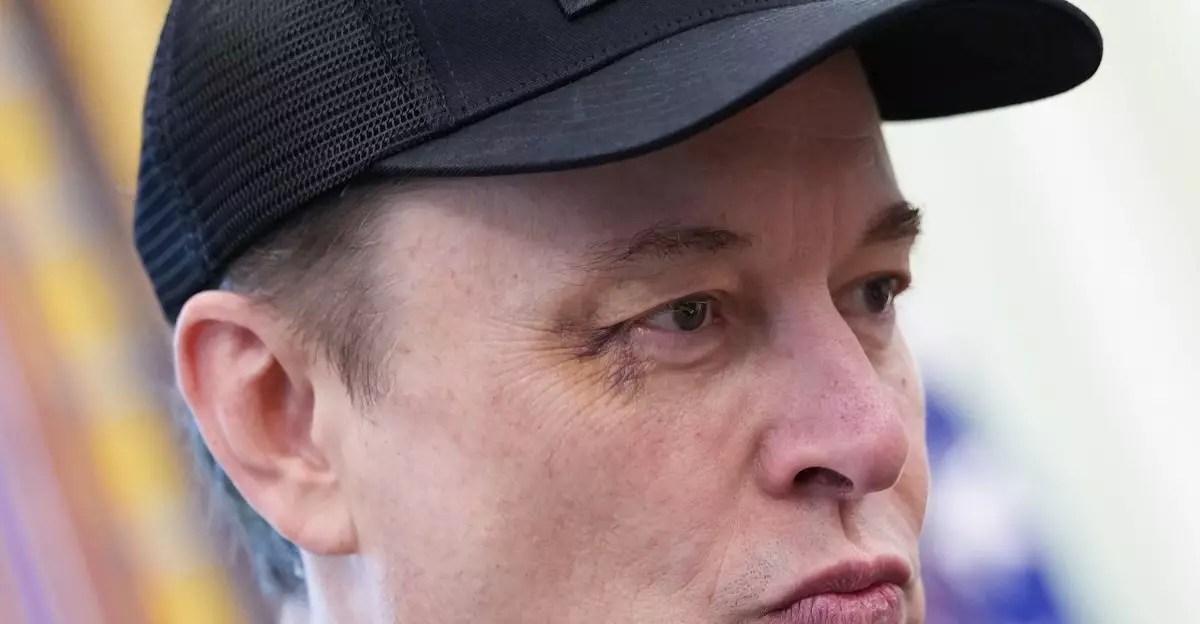Elon Musk’s recent departure from the Department of Government Efficiency (DOGE) has sparked conversations that extend far beyond mere speculation about his future endeavors. His exit follows a tumultuous five months characterized by an intense public gaze and scrutinizing media narratives. While he boasts of his contributions and the ethos behind DOGE, the undeniable reality is that the organization, alongside Musk’s reputation, faces considerable challenges and skepticism.
Despite Musk’s claims of success, signs point to a troubling legacy. The most notable one is Tesla’s declining influence in a competitive electric vehicle market, a stark contrast to the innovation and excitement that characterized the company’s initial meteoric rise. This slump raises questions about Musk’s leadership, especially in light of reports indicating that his management style may have negatively impacted employee morale and productivity. With industry experts suggesting that instead of creating efficiencies, DOGE has, in fact, added to financial waste, one wonders whether Musk’s vision remains aligned with reality.
The Weight of Public Perception
Musk’s public persona, previously celebrated as a maverick entrepreneur willing to disrupt archaic systems, has taken a hit. Recent surveys reveal a growing discontent among Americans toward the billionaire, with many expressing negative sentiments about his actions and statements. His frequent brazen remarks, often couched in a veneer of humor or bravado, have morphed into a susceptibility for ridicule. The backlash has manifested not only in public opinion but also in direct consequences for his companies, which struggle to maintain investor confidence amidst the noise.
His recent appearance alongside President Trump, sporting a noticeable black eye and discussing the supposed benefits brought forth by DOGE, adds yet another layer of complexity. While he made grand assertions about saving the government significant sums, a closer examination reveals potential exaggerations that might contribute to the skepticism surrounding his effectiveness.
The Duality of Success and Failure
Elon Musk has long been enshrined as an innovator, championed for his visionary approaches in technology and green energy. However, the golden boy image has been marred by serious allegations regarding the fallout from his cuts to crucial sectors like humanitarian aid. Reports tying his decision-making directly to tragic outcomes further haunt his legacy, asserting that the pursuit of fiscal efficiency may have come at an unthinkable human cost.
Yet, even as the shadows of controversy follow him, Musk continues to express a steadfast belief in the mission of DOGE. He likens the operation to a philosophical journey, suggesting a deeper commitment to the efficiency agenda than may be immediately evident. This dichotomy presents a compelling narrative: While the lofty ideals of transformation and efficiency abound, the troubling consequences of their implementation cannot be overlooked. Is Musk’s vision merely aspirational, or can it withstand the rigors of practicality?
Power Shifts and Future Directions
In the backdrop of Musk’s theatrical exit and disheveled public image, speculation swirls regarding the leadership trajectory of Tesla and DOGE alike. The whispers of a search for a new CEO signal broader recognition that perhaps the company’s ethos has strayed off-course from its mission to dominate the electric vehicle landscape. Musk’s adherence to innovative ideals may not be sufficient against the relentless pressure for tangible results and accountability.
The golden key presented by Trump—a suggestive gesture of appreciation—implies that while Musk’s governmental endeavors may conclude for now, his influence on economic and technological fronts will linger. As he vows to ensure the continuation of DOGE’s mission, one must consider whether this advocacy is built on sustainable principles or borne from the need for redemption in the face of recent backlash.
The Intersection of Integrity and Innovation
Ultimately, the legacy of Elon Musk and his foray into DOGE does not merely rest on the cuts made or the accolades received. It poses a broader question about the relationship between innovation, governance, and social responsibility. As Musk navigates his path forward amidst a storm of criticisms, the onus now lies in reconciling his grand visions with the realities governing his operations. The future will tell whether he can transcend the limits of public discourse and reclaim his status as a leader capable of inspiring both admiration and trust.


Leave a Reply